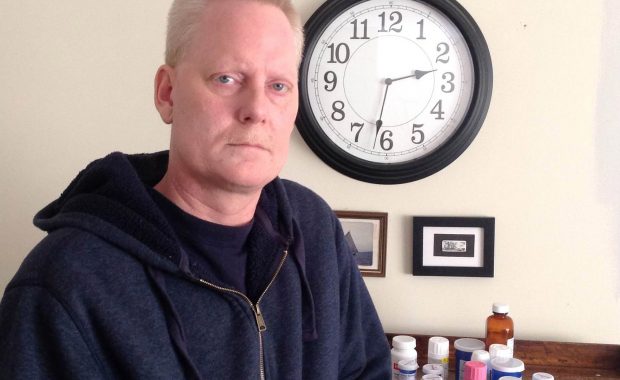BARRY’S BAY – Killaloe native Tom Steepe is facing the battle of his life and is hoping someone out there can save him.
It all started in October 2007, when he began to experience some unusual symptoms. He was tired and had extreme itching and unusual large bruising.
So, he visited his family doctor who performed a simple blood test and immediately recognized the signs of kidney disease.
He was fast-tracked to an internist the following day, where he underwent a series of tests.
“[The internist] broke the news to me that I was, in fact, in end-stage renal failure,” Steepe told the Gazette.
There are two types of kidney failure: Acute and chronic.
“In the case of acute failure, which is often of sudden onset, often steps can be taken to halt the rate of failure,” Steepe explained. “In the case of chronic failure, the disease has often progressed more slowly, often unnoticed, and the symptoms are so slight that the patient has no idea until the disease is very advanced. My disease was of the latter type.”
This came as a shock, considering Steepe had no other signs or symptoms that things were progressing so quickly.
Steepe was raised in Killaloe on a farm where his adoptive parents, Vince and Nancy, still live today.
He has three adopted siblings and two biological siblings as well.
After graduating from Madawaska Valley District High School, he attended Canadore College in North Bay, where he graduated with two diplomas including one in radio broadcasting and another in broadcast journalism.
For the past 21 years, he has been married to his wife, Marcia.
The couple had been living in Kingston, Ont., until seven years ago.
At that time, the couple packed their bags and headed east to Crapaud, Prince Edward Island, where Steepe was offered a news reporter position with CBC Television.
The job was physically demanding, so after his diagnosis with kidney disease, Steepe was forced to step away from the position in May 2009.
He was placed on the kidney transplant list for a cadaver kidney.
“Finding a kidney match is a complicated process,” Steepe said. “In my case, even more complicated.”
In his adoptive family, no one matched his rare blood type.
“Blood type is one of the first markers when a transplant donor is considered,” he said.
Steepe is a B negative blood type, the second rarest in Canada. Only 1.4 per cent of Canadians have B negative blood.
Because of this, he must receive a kidney from a person with either B negative or an O blood type. However, no one in his immediate family matched.
“So I waited,” Steepe explained.
During this time, he maintained a healthy lifestyle and avoided haemodialysis treatment.
“I was healthy in all other ways. Many patients have pre-existing conditions like diabetes or heart disease to deal with – which I didn’t,” he said. “So, through adherence to a very strict diet and a lot of care, I was able to stay off dialysis.”
Get your March 12, 2014 edition of The Valley Gazette to read this full story.
